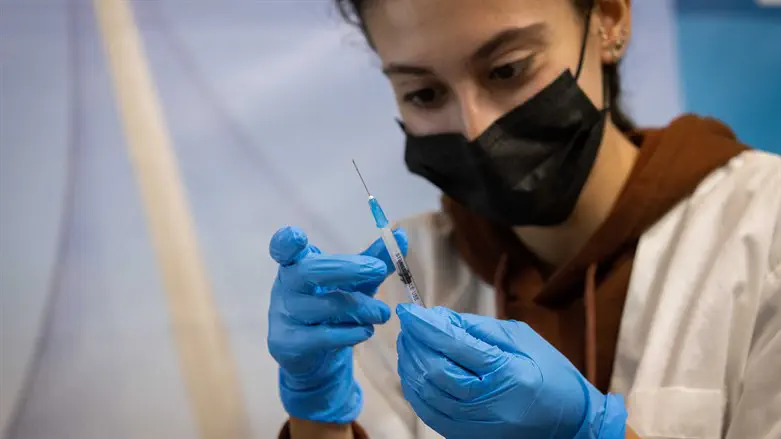
A resurgence of COVID-19 infections along with waning immunity of the vaccine led the Israeli Health Ministry to approve on July 30, 2021, the administration of a third (booster) dose of the Pfizer-BioNTech (BNT162b2) vaccine.
This strategy proved to be highly effective, as reported by a series of studies, and helped paving the way for an US Food and Drug Administration (FDA) emergency authorization to a booster dose to individuals 65 years of age and older or 18 through 64 years of age at high risk of severe COVID-19.
Yet, efficacy and safety of the third (booster) dose of the SARS-CoV2 BNT162b2 vaccine in actively treated cancer patients was unknown.
In a study performed in the division of oncology at Tel Aviv-Sourasky Medical Center, Dr. Ligumsky and colleagues examined the immunogenicity of cancer patients against SARS-CoV2 before and after the booster vaccine dose. Results now published in Lancet Oncology demonstrate that prior to the booster dose, 20 (28.2%) cancer patients were seronegative, compared to only 2 (1.4%) healthy individuals.
The study was conducted by Hagai Ligumsky, Herut Dor, Tal Etan, Inbal Golomb, Inbal Greenberg, Tamar Halperin, Yoel Angel, Oryan Henig, Avishay Spitzer, Marina Slobodkin, and Ido Wolf, in collaboration with the COVI3 study investigators.
Following administration of the booster, only three of the cancer patients and none of the healthy individuals remained seronegative.
A significant increase in anti-SARS-CoV-2S IgG absolute antibodies levels in both groups was also noted. Higher pre- and post-booster antibody levels were noted in healthy individuals.
The booster dose was well tolerated among all participants, and short-term side effects profile resembled those reported in previous doses.

